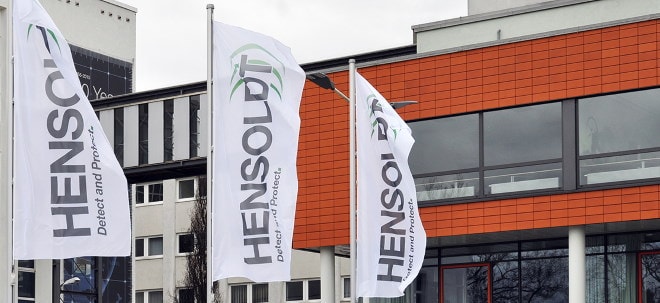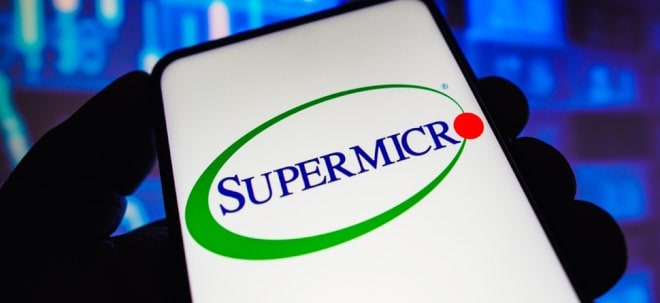Work-Life Balance Emerges as Leading EVP Driver For Talent Attraction and Employee Engagement: Randstad Hong Kong
Randstad Hong Kong releases the 13th Employer Brand Research, based on insights from 2,599 respondents.
- Work-life balance has reclaimed its position as the leading Employee Value Proposition (EVP) driver for talent in Hong Kong, once again surpassing salary and benefits after a one-year gap
- Disengaged employees are 12% more likely to consider leaving their jobs, with poor work-life balance cited as the primary reason for demotivation
- 38% of Gen Z feel more motivated because of good changes in leadership and culture
- Gen X professionals are increasingly stepping back from using AI at work, with only 20% reporting frequent usage, a 6-point decline compared to 2024
HONG KONG, June 24, 2025 /PRNewswire/ -- "Work-life balance" reclaimed top position as the top employee value proposition (EVP) driver for talent in Hong Kong SAR, surpassing "attractive salary and benefits" again after a year.
Randstad, the world's largest talent company, today released its full 2025 Employer Brand Research report in Hong Kong SAR. Commissioned by Randstad and independently conducted by Kantar, this annual study is the world's most comprehensive employer brand research, surveying over 170,000 people globally, including 2,599 respondents in Hong Kong SAR.
Benjamin Elms, Managing Director at Randstad Hong Kong commented, "Talent expectations are much more multi-faceted now. To put the research data simply, employees are expecting fair and equal support from their employers in return for their work contributions. In particular, work-life balance is set to become a key factor in attracting and retaining talent as salaries and benefits become increasingly competitive. As alternative income and flexible employment become more accessible to everyone, work-life balance stands out as a key factor that sets employers apart."
top 5 most important EVP factors when thinking about an ideal employer (from a list of 16)
Hong Kong SAR | Gen Z | Millennials | Gen X |
work-life balance | work-life balance | work-life balance | work-life balance |
salary & benefits | salary & benefits | salary & benefits | salary & benefits |
company's financial health | equity | company's financial health | company's financial health |
job security | company's financial health | job security | job security |
equity | strong management | good training | work atmosphere |
work-life balance is the main factor affecting how engaged or disengaged employees feel
The survey found that 58 per cent of respondents felt engaged in their current roles, with 48 per cent experiencing higher motivation than in 2024.
However, 19% of respondents said that they felt less engaged in 2025. Furthermore, disengaged workers are 12% more likely to consider quitting compared to respondents who feel engaged.
Elms shared more about how motivators can impact talent attraction and retention, "The employee experience can often be overshadowed by deliverables and deadlines, which take precedence in our daily work lives. Yet, the simple moments like feeling safe to voice a different opinion, having the opportunity to learn something new, and even having a relaxed lunch with our colleagues can make all the difference to keeping employees engaged and make it less likely for them to look for greener pastures."
2 in 5 respondents said that having a strong work-life balance keeps them motivated and engaged, this is followed by "opportunities for growth, promotion and development", and "confidence in job security", both at 32 per cent.
Being the only work generation to do so, Gen Z respondents ranked "good changes in leadership and culture" above "strong work-life balance" as a strong motivation factor, though only by 1 point. The research found that culture and growth are important factors for Millennials and Gen X as they are motivated by good team support, good working relationships, and growth opportunities.
When it comes to demotivators, the work generations have slightly different takes, even though all work generations ranked "poor work-life balance" and "excessive workload" in their top three reasons.
36 per cent of Millennials are equally demotivated if they have a "poor work-life balance" or a "desire for higher salary or better benefits". 37 per cent of Gen Z are more likely to be disengaged if they want better pay or benefits, and 29 per cent of Gen X feel unhappy if they receive unclear or unrealistic expectations from their management.
top 3 factors that motivate respondents
Hong Kong SAR | Gen Z | Millennials | Gen X |
strong work-life balance 40% | good changes in leadership & culture 38% | strong work-life balance 37% | strong work-life balance 46% |
opportunities for growth, promotion & development 32% | confidence in job security 37% | feel valued & supported by manager / team 32% | opportunities for growth, promotion & development 32% |
confidence in job security 32% | strong work-life balance 37% | opportunities for growth, promotion & development 32% | better relationships with colleagues & management 31% |
top 3 factors that do not motivate respondents
Hong Kong SAR | Gen Z | Millennials | Gen X |
poor work-life balance 37% | want higher salary or better benefits 37% | poor work-life balance 39% | excessive workload 36% |
excessive workload 39% | poor work-life balance 36% | want higher salary or better benefits 39% | poor work-life balance 32% |
want higher salary or better benefits 34% | excessive workload 32% | excessive workload 37% | unclear & unrealistic expectations from management 29% |
harnessing the power of AI for talent attraction
AI adoption in Hong Kong SAR held steady year-on-year, with frequent users increasing by 4 per cent and 1 per cent among Gen Z and Millennials respectively. However, the annual research found that Gen X are stepping away from using AI at work, with only 20 per cent reporting frequent usage, a 6-point decline compared to 2024.
Furthermore, 39% of Gen X respondents said that they have never used AI at work this year, a 2 per cent increase from the year before. In the same vein, 16% of Gen X feel that AI has no impact on their work.
As AI transforms workflows, productivity and employee experience, Elms said, "Most Hongkongers feel positive about AI, viewing it as more of a companion at work rather than a threat to their job security. To further boost their confidence, employees are increasingly expecting their employers to be more involved and supportive in offering AI training, like writing prompts, responsible use of AI, and use cases that they can refer to. Companies that leverage their AI enablement outcomes for employer branding and talent attraction will be able to attract more digital natives to their organisation."
Randstad Hong Kong 2025 employer brand research report: now available
The 13th edition of the Randstad Hong Kong Employer Brand Research is available now on the website, exploring the insights from 2,599 respondents for the following themes:
- How talent across different generations is ranking EVP importance (from a list of 16)
- Evaluation of factors driving employee motivation and engagement (i.e. workload, promotion opportunities and peer support)
- Year-on-year trend of AI adoption in Hong Kong's workforce
- Measurement of the employer's equity scores in ensuring equal opportunities for all
About Randstad Employer Brand Research
Randstad Employer Brand Research 2025 explores the views of working people in Europe, Asia-Pacific, Latin and North America.
Data was collected from over 170,000 respondents in Argentina, Australia, Austria, Belgium, Brazil, Canada, Chile, Mainland China,Czech Republic, Denmark, France, Germany, Greece, Hong Kong SAR, Hungary, India, Italy, Japan, Luxembourg, Malaysia, Mexico, the Netherlands, New Zealand, Norway, Poland, Portugal, Romania, Singapore, Spain, Sweden, Switzerland, the United Kingdom, the United States and Uruguay between 6 January 2025 and 2 March 2025.
For this research, Randstad partnered with Kantar, a global research and analysis firm.
About Randstad
Randstad is a global talent leader with the vision to be the world's most equitable and specialised talent company. As a partner for talent and through our four specialisations — Operational, Professional, Digital and Enterprise — we provide clients with the high-quality, diverse and agile workforces that they need to succeed in a talent-scarce world. We help people secure meaningful roles, develop relevant skills and find purpose and belonging in their workplace. Through the value we create, we are committed to a better and more sustainable future for all.
Headquartered in the Netherlands, Randstad operates in 39 markets and has approximately 40,000 employees. In 2024, we supported over 1.7 million talent to find work and generated a revenue of €24.1 billion. Randstad N.V. is listed on the Euronext Amsterdam. For more information, see www.randstad.com.
![]() View original content:https://www.prnewswire.com/apac/news-releases/work-life-balance-emerges-as-leading-evp-driver-for-talent-attraction-and-employee-engagement-randstad-hong-kong-302488025.html
View original content:https://www.prnewswire.com/apac/news-releases/work-life-balance-emerges-as-leading-evp-driver-for-talent-attraction-and-employee-engagement-randstad-hong-kong-302488025.html
SOURCE Randstad Hong Kong

